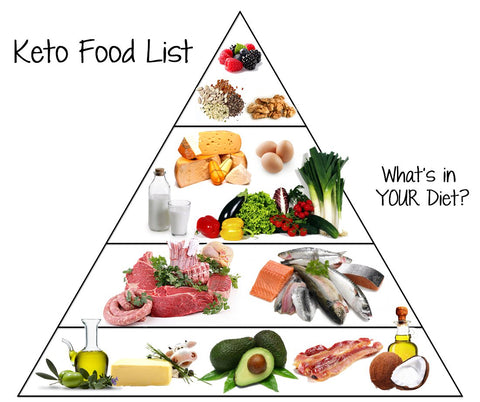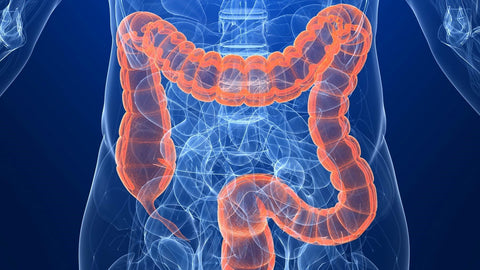Low-Carb or Keto Diets: Are They Really Healthy For You?
The Clean Addicts have had "keto" or low-carb dessert and cake requests lately, and I want to share our beliefs and experiences on how going low-carb could be dangerous!
Keto Diet
Ketogenic or keto is a high-fat diet that is now the buzz-word in the health and food industry.
It is a diet that dramatically restricts carbohydrates, where 70-80% of calories comes from fat, 20-25% from protein and 5-10% from carbohydrates (about 20-50g) a day. Just to give you an idea: one banana contains 27g of carbs.
Furthermore, many are encouraged to consume below 20g of carbs to reach ketosis in order to boost weight loss rate.
The goal of this is to reach the state of ‘ketosis’.
Ketosis happens when the body breaks down fat into molecules called ketones and become the main source of energy (instead of carbohydrates) for many cells in the body when circulated in the blood and burn fat for fuel, resulting in weight loss and better mental performance.
Most importantly, the keto diet is used primarily used to treat children with epilepsy, people with seizure disorders and specific types of cancer.

Foods to eat on a Keto diet
Food that are encouraged to eat include: red meat, eggs, bacon, oils and fats, cheese and dairy.
Food to limit include wholefoods such as:
- starchy vegetables (sweet potatoes, potatoes, pumpkin, legumes)
- wholegrains (oats, rice, buckwheat, corn, rye, barley)
- juices, smoothies and fruits that are higher in sugars like apple, banana, grapes and oranges
Risks of Keto Diet
With so much fat consumed and little fibre, it could increase your chances of developing cardiovascular disease, type 2 diabetes due to insulin resistance and certain cancers. There is also an extensive body of research on how saturated fat diets can be damaging to the body.
According to Nutritionist and Medical Doctor, Dr. Renae Thomas, “this recent surge in ketogenic diet, high meal, low carbohydrate diets has just been frightening from medical perspective.”
“I am not going to say it doesn’t work for weight loss, it does.”
“It’s a condition of disease really, being in ketosis is what we see when people are extremely ill, there’s nothing healthy about it.”
Thomas notes that “a diabetic in ketoacidosis is going to come into the hospital but usually the ICU”.
To add on, ketones are the same substances that accumulate during ketoacidosis in people with with type 1 diabetes!
Here are insidious health risks if you are following a strict keto diet, especially for weight loss.
Deficient of an Array Nutrients. While restricting on vegetables, fruits, and grains, you may be at risk for deficiencies in micronutrients, such as magnesium, phosphorus and vitamins B and C.
Nutrition researcher Ian Johnson emphasises, “There is nothing to be gained from long-term adherence to low-carbohydrate low-carbohydrate diets rich in fats and proteins from animal origins.”
Most should come from plant foods that are rich in dietary fibre and intact grains. Products with too much artificial sugars like maltitol can even have a laxative effect on your system.
Shorter Lifespan. According to a Lancet study done in 2018, people who consumed 50-55% carbs outlived those with very low-carb diets, on average, by 4 years. Those who had moderate carb intake also outlived those on high-carb diets by 1 year.
Liver problems. Keto diet could make any existing liver conditions worse, since there’s so much fat to metabolise.
Kidney problems. The kidneys aid in the metabolisation of protein, and a keto diet may overload them. (The current recommended intake for protein averages 46 grams per day for women, and 56 grams for men).
Loss of period for women. Restricting carb intake is not anything healthy.
“As women, we need both adequate calories and nutrients to function normally and to maintain a regular menstrual cycle.” says nutritionist Vanessa Roster.
“The most common causes of irregular periods or amenorrhea (absence of a period for three months or more) are stress, too little carbohydrates, calorie restriction, and exercise.”
Constipation and Increased Risk for Colon Cancer. Keto diet has minimal grains and legumes which is extremely important for a healthy bowel system.
Further, researchers have found that diets high in animal products (including keto and paleo) and low in fibre, have been linked to the development of colon cancer. Diets with low amounts of meat or no meat intake greatly reduce this risk.

Image credit: Everyday Health
Personal Experiences
Annie Wong, a trainer from F45 Serangoon Garden South, whom I interviewed, states that going on a Keto Diet for two months or more has caused her to feel nauseated and constipated.
While she consumed large amounts of calories from high-fat foods like meat and oils, Annie still felt restricted.
She just couldn’t function without her carbohydrates.
The diet also led her to gaining even more weight (effects of the yoyo-diet) after and wouldn't recommend anyone to attempt it.
Yo-yo dieting is setting yourself up for developing metabolic syndrome and increased risk of mortality.
Similarly, I have tried low-carb diets myself, and have had mood swings and experienced irritability. It has led to hormonal imbalances and loss of period. I wouldn't want to wish these upon anyone else!
It took years to regain it and long-term periods of not having a regular menstrual cycle can lead to osteoporosis (brittle bones) and fertility issues.
If you have irregular periods or missed your period due to dietary changes or following a heavy exercise regime, it is a sign that your body is trying to tell you! Please consult a doctor and get your hormone levels checked.
Fad Diets Don't Work
Ultimately, keto or low-carb diets are not balanced diets.
"Dieting" or "restriction" may come from a good place to cut out unprocessed foods, but is it worth it to sacrifice your health and cut out essential nutrients for the fast weight loss results that you want?
These extreme diets should not be a permanent weight loss or maintenance solution as the negative effects far outweighs the positive. It also contradicts the studies on Blue Zones, where the longest-living people live, and how science have proven that eating beans and wholegrains (also a form of carb) can help you to live longer.
Read our previous blog post on How to Extend Your Lifespan with Beans
If you do intend to do it, please seek professional advice to check if you are suitable for a diet that is high in saturated fats.
UPDATE: read a recent medical study on the dangers of Keto.
End Note
In the meanwhile, please learn to love your body and nourish it with the right wholefoods and share this post with others who struggle with their weight or body image.
Most of us have gone through extreme diets and have learnt it the hard way, which is why we have spent time working on this post (with evidence from science and real-world experiences) in hopes to spread awareness to others.
Do not go down this path like I did.
Let food be your medicine and not something that you fear or take over your life.
Mental and physical health need to be in sync. If you are always restraining you from going out or enjoying 'naughty foods' that you used to love, you'd probably have to re-evaluate your definition of health.
If not, you'll always be trapped in a vicious cycle of the yoyo-dieting and binging that is extremely unhealthy. Mental health should always be your top priority.
I love this quote:
Eat to meet long-term goals, not short-term satisfaction.
The Clean Addicts Philosophy
At The Clean Addicts, we believe in nourishing your mind and bodies with the right foods that your body thrives on. This is also why I have tested and curated treats made mostly with complex carbs (and low in sugar) that still nourishes the body.
Vanity can be a valid reason to start any kind of rapid low-carb weight-loss solution, but at what cost? We wouldn't want to create even bigger problems while satisfying a small one.
Treat your bodies the right way everyone! To good health!
Love,
Andrea
Founder of The Clean Addicts

